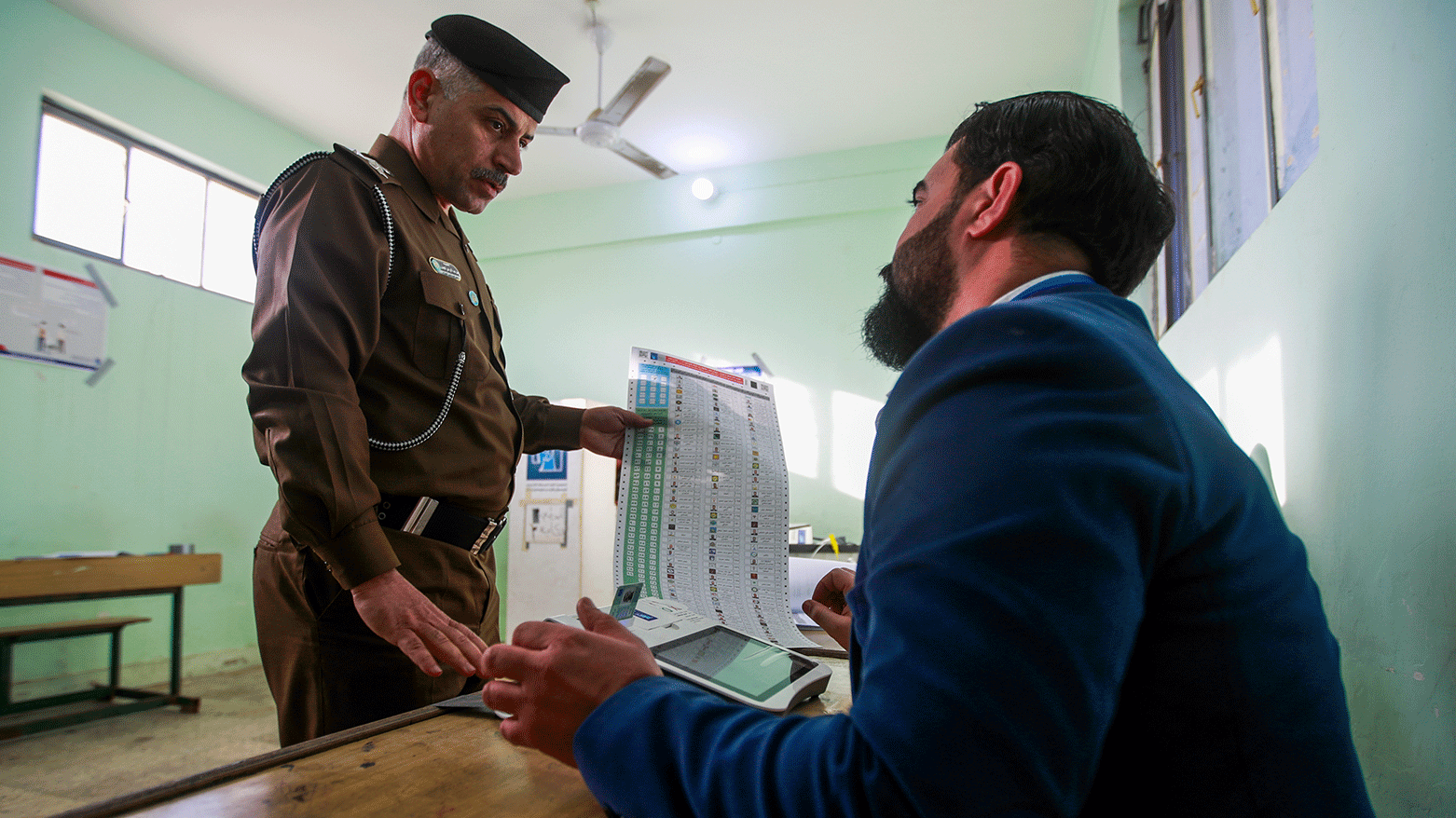67 percent of ‘special’ voters participate in early IHEC voting
The special voters include government personnel, such as lawmakers, police officers, internally displaced persons (IDPs), and military personnel.

ERBIL (Kurdistan 24) – According to the Iraqi Independent High Electoral Commission (IHEC), more than 67 percent of eligible “special” voters participated in early voting for the Iraqi provincial council elections on Saturday.
The special voters include government personnel, such as lawmakers, police officers, internally displaced persons (IDPs), and military personnel.
Additionally, the IHEC stated that more than 706,000 out of 1.05 million eligible voters throughout Iraq turned out on Saturday.
Among notable statistics provided, the disputed territories, or areas claimed by both Baghdad and Erbil, recorded higher than average turnouts across the country, with a 75% turnout for Nineveh Province, 70% for Kirkuk Province, and 78% for Diyala Province.
More than a million special voters were eligible to cast their votes throughout Iraq on Saturday. The process began at 7:00 a.m. (Erbil Time) and continued until 6:00 p.m.
The elections have been particularly sensitive in Kirkuk, where on Dec. 12, complaints were filed by candidates from the Qiada Coalition and the Iraqi Turkmen Front, although these petitions were later rejected by Iraq’s Supreme Court.
In their petition, the two plaintiffs asked the Federal Court to re-evaluate voter registration and remove the names of 257,000 Kurdish voters in Kirkuk, referring to citizens who returned to the region after being displaced by the former Ba'athist regime.
In the 2005 elections, Kurdish political parties participated in the provincial council elections with the Kirkuk Brotherhood list. This list won 26 out of 41 seats as the first list in Kirkuk.
Since then, Kirkuk has yet to witness a provincial election due to repeated delays, sparked by ethnic tensions between Kurds and the Arab-Turkmen alliance.
The Iraqi parliament dissolved provincial councils under the Iraqi federal government authority in 2019 following protests against corruption and unemployment in October of that same year.
